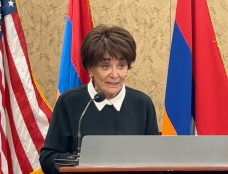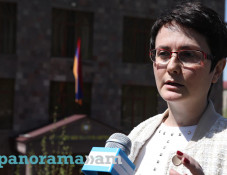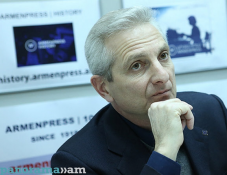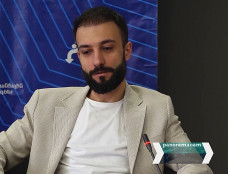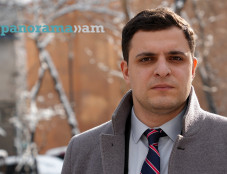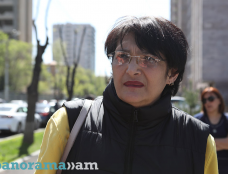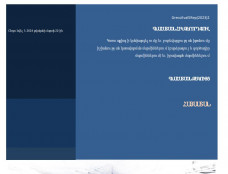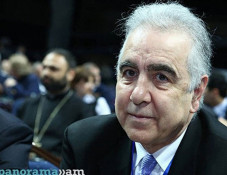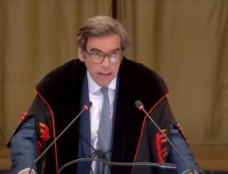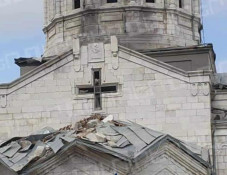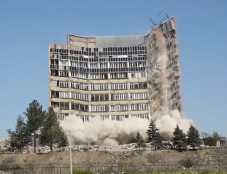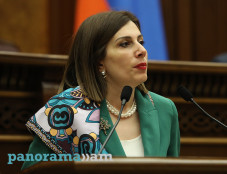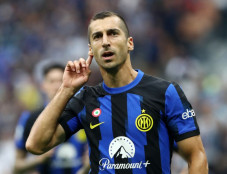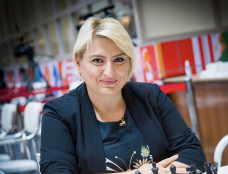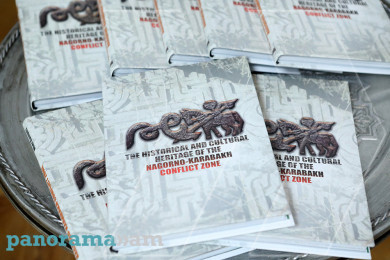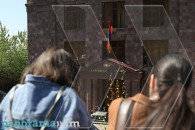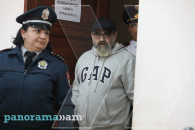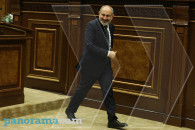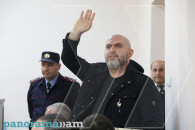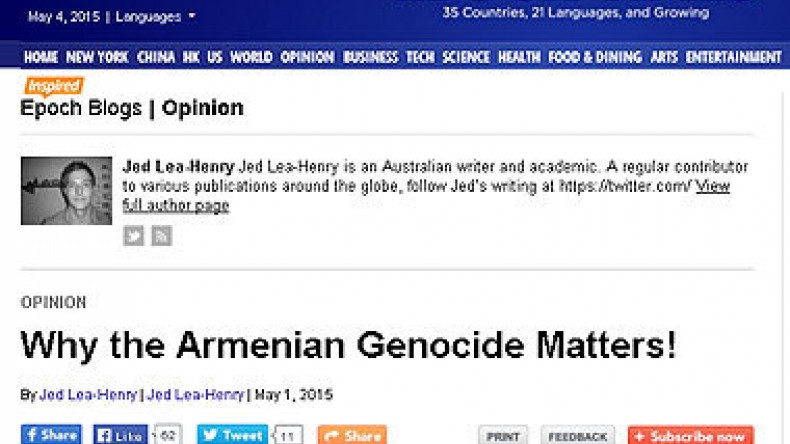
Why the Armenian Genocide matters!
By Jed Lea-Henry
The Epoch Times
For a moment, try to imagine an unpleasant scenario: The German nation, tired of acting humble and tied of expressing guilt for the crimes of its grandparents, decides to free itself from the burden of the past. The Holocaust is methodically re-labelled as an ‘act of war’, the deaths of six millions Jews will now be considered little more than an unfortunate accident, and the moral responsibility upon the German people completely expunged.
International condemnation floods in, yet the German state stands firm. And in order to enforce the change internal dissent is suppressed, counterfactual reporting is criminalised, and international diplomacy made contingent upon agreement with this new revision of history.
Pressured by a desire to maintain international relations with the world’s fourth largest economy, how long would it take before a selection of countries begin to officially deregister their recognition of the Holocaust as a genocide?
If this seems unlikely, it is a positive reflection upon the nature of the modern German state, and certainly ought not to be an expression of faith in the moral fortitude of the international community. Indeed, Turkey has proven that such a model of coercive denial would almost certainly work: they have, after all, successfully and consistently managed to intimidate the vast majority of the globe into silence over the Armenian genocide.
On April 24, 1915, the ‘Young Turk’ government of the Ottoman Empire arrested, and later executed, 250 Armenian intellectuals in Istanbul (then Constantinople). This began a series of escalating attacks that resulted in the forced deportation of the Armenian population from the Anatolian region. Those who resisted were killed, just as the majority of those who submitted also died from exposure, starvation and exhaustion, or were simply murdered by the Ottoman soldiers en route.
It is hard to find anyone of academic standing willing to argue that this was not a carefully constructed campaign of annihilation, amounting to the first genocide of the twentieth century; of the 2 million Armenians living in the Ottoman Empire at the start of the First World War, 1.5 million were killed during this period.
The consensus here is so overwhelming that it would seem inconceivable for the Armenian genocide to remain a contentious issue today. The reason that it does, can be attributed to a single factor: the sheer determination of the modern Turkish state.
Turkey has gone to considerable lengths to refute the official course of events, to present mitigating information, and to try to show that Armenian wartime deaths should not constitute special consideration:
Turkey considers the true number of those killed to be closer to 300,000; they view the Armenians during the war period as a treasonous fifth column – perhaps in part correctly, considering the presence of open alliances with the Russian Army (150,000 Armenians served with the Russian forces), and a series of Armenian guerrilla attacks on Ottoman infrastructure; and they point out that the Young Turks struggled to support all sections of the Empire, not just the Armenians – statistically an Ottoman soldier was nearly seven times more likely to die from cholera or typhus than from combat itself, and a third of all prisoners of war held by the Ottomans died in captivity, (predominantly from starvation, dysentery and exhaustion); this compares with only four percent of captives who died in German custody.
By presenting the killing of Armenians as a common-place act of war, the Turkish government is deliberately trying to avoid matching the legal criteria of the Genocide Convention. For the label ‘genocide’ to apply, it is not enough to simply make note of the scale of killing; proof of intention to committed the genocide is also required – and this is notoriously hard to do.
However, with the Armenian genocide this is simply not the case. By their own account, the Ottoman Empire did not have the capacity to protect and sustain their own soldiers, let alone a large body of at-risk migrants. It should therefore stand as common-sense that the forced expulsion of an entire ethic group across inhospitable deserts and mountain ranges would almost certainly amount to the deaths of those people.
Yet if this wasn’t convincing enough, the Ottoman Empire openly admitted to the genocide at the time. Just as the Nuremburg trials have made Holocaust denial near impossible, the Ottomans, following defeat with the Armistice of Mudros, set in place a series of court martial proceedings from 1919-1920, in order to investigate the crimes of the Young Turk government.
These proceedings, enacted by the then embryonic Turkish state, provide a detailed, and irrefutable documentation of the Armenian genocide. Direct testimony from high ranking soldiers show a considered, planned, and executed, top-down campaign of genocidal killing against the Armenians, with the word “exterminate” repeated throughout the personal statements.
There is considerable speculation as to why the modern Turkish state is so committed to revising its own self-acknowledged history.
Whilst there is reason to believe that concern over possible legal ramifications following an acceptance of the ‘genocide’ label might be a driving force here, it is much more likely to be simply a matter of nationalistic pride – as explained recently by Turkish President, Recep Tayyip Erdogan, “it is out of the question for there to be a stain, a shadow called ‘genocide’, on Turkey.”
Following a long and concerted effort to silence domestic criticism, this sentiment has successfully permeated through Turkish society, with ninety-one percent of Turks polled now believing that the killing of Armenians did not constitute genocide.
However, neither the motivation nor the domestic policy of the Turkish state should be of primary concern. What ought to be worrying is just how successful Turkey has been in convincing the international community to support its historical revision. Currently only 26 countries have officially recognised the Armenian genocide; the abstaining nations include China, Japan, France, the United Kingdom, Australia, the United States, and inexplicably, Israel.
Turkey, a rising economic power (now within the world’s 20 largest economies), and a strategically important country (considering its place as the gateway to the Arab world), has consistently managed to leverage its diplomatic value. Accordingly, avoiding the term ‘genocide’ has become the price of admission for achieving a constructive international relationship with Turkey.
As a presidential candidate, Barack Obama spoke freely on this issue, and in 2008 gave the commitment “as president I will recognize the Armenian Genocide”. Yet once in Office, President Obama has been conspicuously evasive, happy to speak about the Armenian ‘massacres’, ‘deportations’, and ‘death marches’, yet never ‘genocide’. Pushed to explain this failure to keep his own election promise, an administration spokesman cautiously explained that diplomatic pressure had changed the President’s mind, “we believe that the approach we have taken in previous years remains the right one — both for acknowledging the past, and for our ability to work with regional partners to save lives in the present.”
This might all seem like an argument over symbolism. After all, the Genocide Convention (1948) cannot be applied retroactively to the Armenian context, nor would it be appropriate. However, morality can be applied retroactively, and indeed it must be if social progress is to be expected, or even desired.
Our response to the crimes of past impacts whether, and with what prevalence, those same crimes are committed tomorrow. It is hard to overestimate the encouragement that the immunity-deals given to Augusto Pinochet and General Marcos provided for other tyrannical leaders; or that international impotency in the face of Israeli land-grabs offered for Russian policy in Georgia and Ukraine; or indeed how Turkey’s successful expunging of the Armenian genocide has provided Japan with the confidence to revisit its own admissions of wartime guilt.
In May 1918, Theodore Roosevelt wrote to Woodrow Wilson, “We should go to war…. because the Armenian massacre was the greatest crime of the war, and failure to act against Turkey is to condone it.” Yet as important as this moral imperative was at the time, the Turkish state was so successful at silencing international discussion of the issue, that it gave Hitler reason to believe that the horrors he was intending to exact upon Poland would be quickly forgotten. Discussing the impact of his impending invasion, Hitler calmed the concerns of his inner-circle by noting, “Who, after all, speaks today of the annihilation of the Armenians.”
The Armenian genocide has set a dangerous international standard: that is, the worst human rights violations, the most significant breaches of our collective conscience, and the most unimaginable crimes can all be forgotten if only the perpetrators are committed to expunging them from history.
Following from this, it should not surprise anyone that the modern Turkish state exists in permanent violation of international law due to its occupation of Cyprus, and the treatment its Kurdish population (actions that have only avoided the ‘genocide’ label due to the guerrilla resistance of the Kurdish people).
As long as the Armenian genocide remains forgotten, and as long as justice is allowed to be contingent upon the cooperation and goodwill of the perpetrators, we must accept that we are creating an international culture of impunity: an environment where human rights and moral responsibility can be taken à la carte, and an environment that rather than protecting against genocide, actually cultivates it.
Newsfeed
Videos





